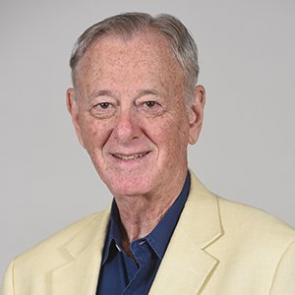Please log in or
create a free account to
purchase your course.
The Constitution is the founding document of the
United States. Yet ever since the process of
ratification, the document’s meaning—and questions
about who gets to decide its meaning—have spurred
pitched political battles, campaigns for elected
office and social change, and arguments among ordinary
voters from all walks of life. Americans have debated
the question of what the Constitution means in
courtrooms and legislatures, at lunch counters and on
picket lines, outside medical clinics and in schools.
Studying the Constitution in the twentieth century
means learning about how law, society, politics, and
culture all interact.
Through examination
of nine defining cases and themes, the course explores
how regular people, social movement activists and
organizations, politicians, scholars, lawyers, and
judges have fought about what the Constitution should
mean inside and outside of the courtroom:
-
Lochner v. New York (1905) and the Role of
the Constitution in the Workplace and the Economy
-
Debs v. United States (1918),
Schenck v. United States
(1919), Abrams v. United States
(1919), Whitney v. California
(1927) and the Rise of Free Speech
-
Korematsu v. United States
(1944) and Changing Ideas of Citizenship and
Belonging
-
Brown v. Board of Education
(1954) and the Struggle for Racial Equality
-
Roe v. Wade
(1972), the Abortion Debate, and Women’s Rights
-
Bowers v. Hardwick
(1986) and the Gay Rights Movement
In the process of studying the meaning of the
Constitution throughout the twentieth century, the
course looks at how we remain integral parts of the
process of constitutional change today.
COURSE CONTENT
- Six seminar sessions led by
Professor Urofsky
- Four pedagogy sessions led by a
Gilder Lehrman Master Teacher
- A
certificate of completion for 15 hours of professional development credit
Readings: The optional readings for each seminar session are
listed in the “Resources” tab on the course page.
Please note that you are not required to read or
purchase any print materials. Quizzes are based on the
content of the seminar recordings rather than the
readings.
Course Access:
After your purchase, you may access your course by signing into the Gilder Lehrman website and clicking on the My Courses link, which can be found under My Account in the navigation menu.
Questions?
Please view our
FAQs
or email
selfpacedcourses@gilderlehrman.org.
 LEAD SCHOLAR: Dr. Melvin Urofsky
LEAD SCHOLAR: Dr. Melvin Urofsky
Melvin I. Urofsky is a professor emeritus of
history at Virginia Commonwealth University. Professor
Urofsky received his BA and PhD from Columbia
University and his JD from the University of Virginia.
He has held fellowships and grants from the National
Endowment for the Humanities, the American Council of
Learned Societies, the Virginia Foundation for the
Humanities, the American Historical Association, and
others. Among the fifty-two books he has either
written or edited, Urofsky’s
Louis D. Brandeis: A Life, published in 2009, won the Jewish Book Council’s
Everett Award as the Book of the Year and the Griswold
Prize of the Supreme Court Historical Society. His
latest work is
Dissent and the Supreme Court: Its Role in the
Court’s History and the Nation’s Constitutional
Dialogue
(Pantheon, 2015).